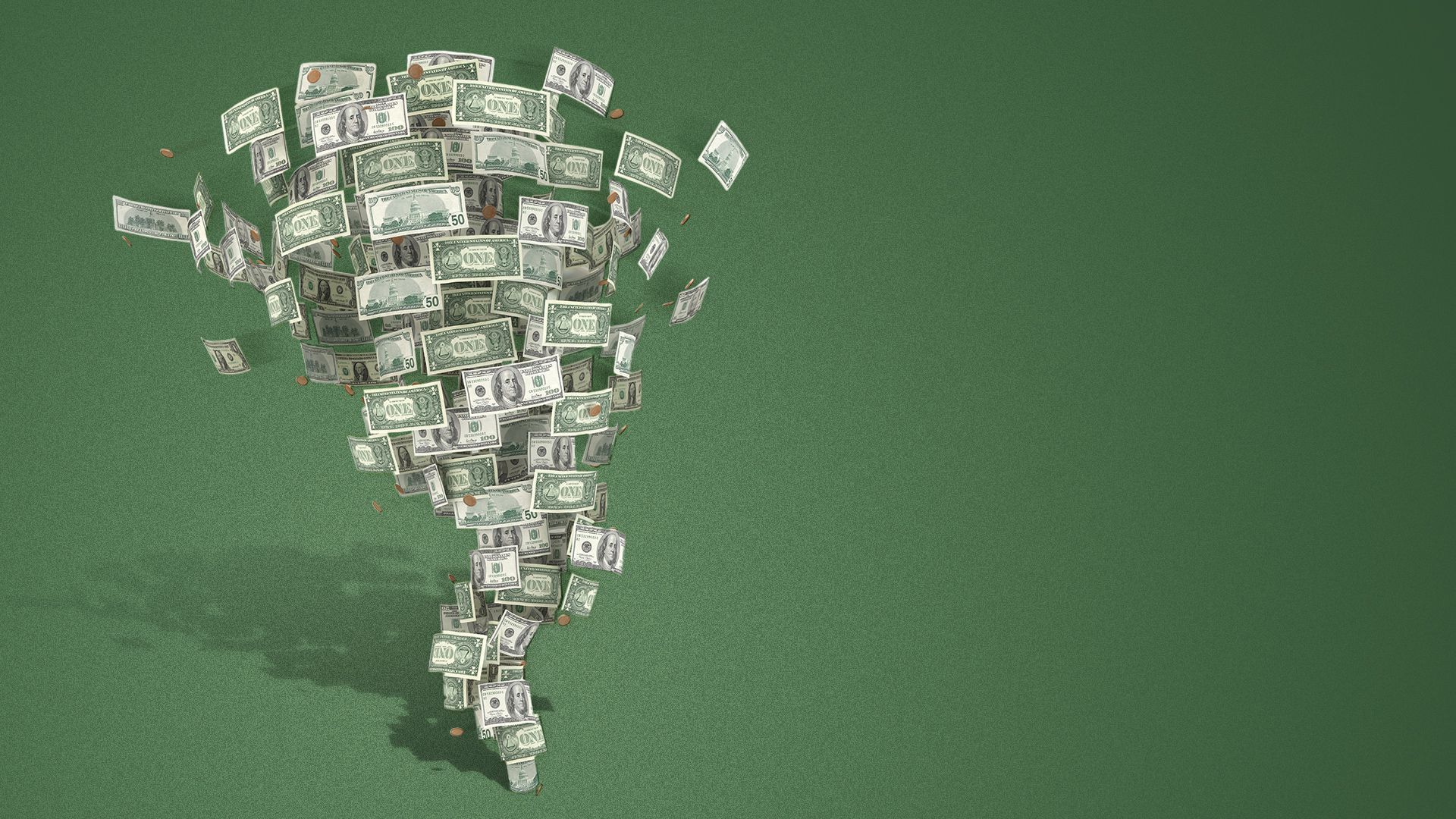How crypto staking connects to financial censorship
Add Axios as your preferred source to
see more of our stories on Google.

Illustration: Aïda Amer/Axios
The cryptocurrency exchange Kraken has been valorized in the crypto world recently because of its loss to the U.S. Securities and Exchange Commission over the issue of "staking."
Why it matters: Who may and may not participate in staking — the process of checking transactions on various cryptocurrency networks — will have implications for another point of tension between blockchains and nation-states: international sanctions.
Flashback: Last year, the Office of Foreign Asset Control (OFAC) put a sanction on the collection of smart contracts known as Tornado Cash.
- Tornado Cash makes it hard to connect the sender and recipient of a transaction. It masks them in a large pool of transactions that all pass through one neutral smart contract.
- Because it was frequently used by criminals and hostile nation-states, OFAC forbid anyone in the U.S. and any U.S. citizen from transacting through Tornado Cash.
How it works: Blockchains use a "consensus mechanism" to insure that all transactions on a blockchain are valid. The most popular mechanism is "proof of stake," where validators post valuable cryptoassets as insurance against their own misuse of the network.
- Proof-of-stake created an opportunity for investors of any size to participate in consensus, by contributing their assets to the stake of validators they trust.
- That way, they could grow their holdings by sharing in rewards, compensation for a faithful validation of transactions.
Last fall, Ethereum became a proof-of-stake blockchain. When it did so, many cryptocurrency exchanges (including Kraken) began creating avenues for their users to participate in proof-of-stake on Ethereum, the world's second biggest blockchain by value.
The big picture: According to MEVWatch, a site that tracks block censorship on Ethereum, Coinbase and Kraken both readily comply with OFAC sanctions, skipping any blocks that touch Tornado Cash or eyebrow raising Ethereum addresses.
- It would not be feasible for large U.S. companies predicated on connections with the banking system to function without complying with OFAC.
Yes, but: Kraken agreed last week to shut its program down, because the SEC said the product was an unregistered security (this follows its own prior run in with sanctions rules). Coinbase has vowed to fight if it's asked to do shut down its own staking offering.
The intrigue: Other validators, with less surface area for U.S. regulators to grip, do not censor, or do so less.
- Other crypto exchanges, such as Binance, Bitmex and OKX also frequently post censored blocks.
What they're saying: "We shouldn’t be too quick to celebrate, as a heavy-handed SEC crackdown could have much bigger consequences for the blockchain sector," Lachlan Feeney, Founder and CEO of Labrys, an Australian blockchain consultancy that made MEVWatch, said in a statement via a spokesperson.
- By Labrys' reckoning, Kraken proposes about 4% of Ethereum's daily blocks.
The other side: "The censorship concerns are a bit overblown at this point," Dragonfly Capital's Tom Schmidt tells Axios. "OFAC-related transactions can still be mined in less than a minute by other validators."
What we're watching: The proportion of validators that ignore U.S. sanction guidances as the SEC runs cryptocurrency exchanges and similar companies out of the staking business.
By the numbers: The proportion of blocks that censor transactions has been dropping, according to MEVWatch, but it remains around 50%.
- It hit 79% in November.
Be smart: Validators aren't ideological. If the most lucrative channel for picking up transactions censors them, they are going to pick up that channel.
- As long as a few validators don't censor, all transactions can still get through. So, OFAC-compliant validators don't actually end up truly censoring the transactions, but it does add friction.
Our thought bubble: Cryptocurrency was created to be borderless money for the internet. Borderless means global, but it also means politically neutral.
- Who's not crazy about politically neutral tools? Politicians.
